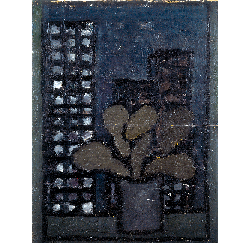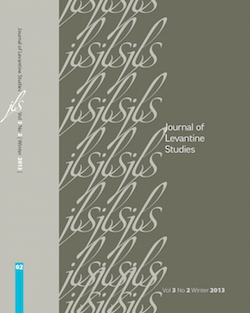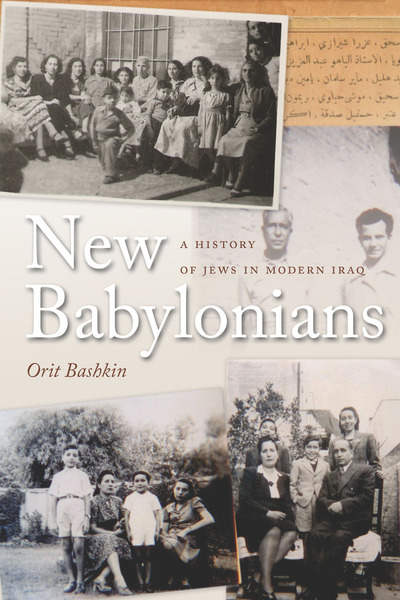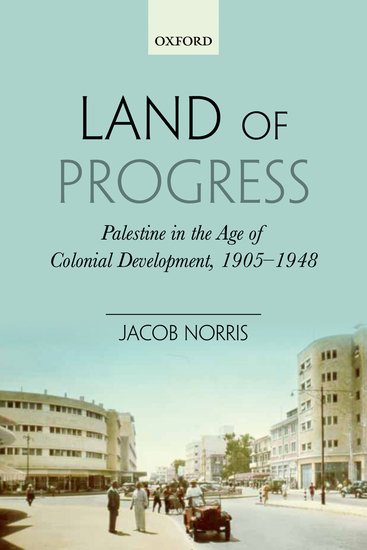-
Add to cartQuick view
The Meaning of “Tolerance,” Which Is the Basis of Modern Civilization
Free!The following translation is a selection from the debate that occurred in 1902 and 1903 between Muhammad ʿAbdu (1849–1905) and Farah Antun (1874–1922), an Ottoman Orthodox Christian intellectual who emigrated from Tripoli to Egypt. The translated section focuses on the question of tolerance and illustrates both the advent of the liberal concept of tolerance in the Arab-Ottoman intellectual sphere and the reception of its ideational content.
Add to cartQuick view -
Add to cartQuick view
Creating Sepharad: Expulsion, Migration, and the Limits of Diaspora
Free!The expulsion of the Jews from Spain in 1492 represents one of the most significant diasporic moments in Jewish history. However, a shared diasporic consciousness among the exiles, what we might call the diasporic “stance” of the Sephardic world, was neither automatic nor universal. Rather, the interconnected challenges of migration, resettlement, and the re-formation of local and translocal communities was a process that endured for much of the sixteenth century, affecting the exiles and their descendants in different ways. This article traces the emergence of the Sephardic diaspora—both as a form of social organization and as a cultural concept—and explores the limits of Sephardic community and identity. My intention is to highlight the strengths and the limits of the diaspora model as a means of understanding the nature and development of Sephardic society in its formative phase.
Add to cartQuick view -
Add to cartQuick view
Orit Bashkin, New Babylonians: A History of Jews in Modern Iraq Stanford: Stanford University Press, 2012. 328 pp.
Orit Bashkin, New Babylonians: A History of Jews in Modern Iraq. Stanford: Stanford University Press, 2012. 328 pp.
$5.00Free!Add to cartQuick view -
Add to cartQuick view
Exile, History and the Nationalization of Jewish Memory: Some reflections on the Zionist notion of History and Return
The essay tries to analyze the notions of “history” and “return” in Zionist discourse in order to clarify their political and cultural implications. I investigate the meaning and function of the phrase “return to history”, commonly used for the description of Zionism, in two different sets of terminologies: the theological terms that defined Jewish-Christian polemics and the terms “culture,” “civility,” and “ethnicity” as used in the discourse of modern nationalism and colonialism. Accordingly I argue that the consciousness embodied in the phrase “return to history” meant the acceptance of the very terms and principles that generated the exclusion of the Jews in Europe. Thheologically and in the terms of premodern Christian-Jewish polemics, the phrase expresses an acceptance of the Christian perception of history of the Jews and their exile. On another level, the use of the modern national model of history for the representation of the Jewish past reveals the obvious Orientalist dimension of the secularization of the concept of history, as referring exclusively to the Christian West. In Zionist discourse both the theological-redemptive and the Orientalist aspects were integrated in a way that illuminated them both. Finally, the return to history and the return to the land meant the obliteration of the history of the land and the existence of its inhabitants. It also determined the removal of the Jews from the multiple local histories in which they had existed in exile in order to include them in one common, separate narrative. As a conclusion, I suggest to re-consider the options embodied in the concept of exile for an alternative way of thinking Jewish-Israeli existence and collectivity.
$5.00Free!Add to cartQuick view -
Add to cartQuick view
Tomer Levi, The Jews of Beirut: The Rise of a Levantine Community, 1860s–1930s New York: Peter Lang, 2012. 230 pp.
Tomer Levi, The Jews of Beirut: The Rise of a Levantine Community, 1860s–1930s. New York: Peter Lang, 2012. 230 pp.
$5.00Free!Add to cartQuick view -
Add to cartQuick view
Deterritorialization of Belonging: Between Home and Unhomely in Miral al-Tahawy’s Brooklyn Heights and Salman Natur’s She, the Autumn, and Me
Free!In this article, I argue that Mīrāl al-Ṭaḥāwī’s Brooklyn Heights (Brūklīn Hāyts, 2010) and Salmān Nāṭūr’s She, the Autumn and Me (Hiya, Anā, wa-l-Kharīf, 2011) call into question the very fixedness of the concepts of “homeland” and “diaspora/abroad,” and obscure the distinction between the indigene and the relocated diasporic subject. She, the Autumn and Me (Hiya, Anā, wa-l-Kharīf, 2011) is the most recent novel by Palestinian Israeli writer Salmān Nāṭūr (b. 1949), a seasoned writer of short stories, novels and critical writings. Brooklyn Heights is the fourth and most recent novel of the Egyptian Bedouin Mīrāl al-Ṭaḥāwī (b. 1969), who stands out as the first Egyptian Bedouin woman to publish modern Arabic prose. Through their portrayal of characters who are outcasts or loners, these contemporary novels complicate and deconstruct axioms which imply a reciprocal association between homeland and belonging, on the one hand, and exile/diaspora and foreignness or estrangement, on the other. In this study, I interrogate portrayals of the homeland in both texts, as it is conceived through shades of belonging and foreignness; and how “abroad” is portrayed vis-à-vis an originary homeland, in layered diasporic terms, and yet also conflated with home and homeland.
Add to cartQuick view -
Add to cartQuick view
Jacob Norris, Land of Progress: Palestine in the Age of Colonial Development, 1905-1948 Oxford: Oxford University Press, 2013. 241 pages.
Jacob Norris, Land of Progress: Palestine in the Age of Colonial Development, 1905-1948. Oxford: Oxford University Press, 2013. 241 pages.
$5.00Free!Add to cartQuick view -
 Add to cartQuick view
Add to cartQuick viewLandscape Representations in Palestinian Art and Israeli Art Discourse: The Case of Asim Abu Shaqra
Free!This article will survey the historical shift and ongoing transformation of Israeli discourse on landscape representations in Palestinian art, as illustrated by the case of Asim Abu Shaqra’s (1961-1990) artwork. Abu Shaqra is one of the very few Palestinian artists who have entered the canon of Israeli art. After graduating in 1986 from the Kalisher Art Academy in Tel Aviv, Abu Shaqra had his first solo exhibition in 1988, at Rap Gallery in Tel Aviv. Over the two subsequent years—until his premature death from cancer in 1990, at the age of twenty-nine—he had three more solo shows and participated in four group exhibitions. In 1994, four years after his death, a comprehensive retrospective exhibition of his work was presented at Tel Aviv Museum’s Helena Rubinstein Pavilion.
The art discourse on Abu Shaqra’s oeuvre, from the very beginning of his activity in the 1980s down to this day, reflects the historical transformations that the Israeli artistic field has undergone in relation to the work of Arab-Palestinian artists who graduated from Israeli art schools. Abu Shaqra’s 1994 retrospective exhibition—which took place in the wake of the dramatic period that began with the outbreak of the first Intifada in 1987 and ended with the Oslo Accords in the early 1990s—marked a historical turning point in the discourse on Palestinian art created in Israel. The rise of a public debate over the nature of Palestinian identity, made possible by the peace process and the Oslo Accords, included a process (still unfolding today) of growing recognition of the Palestinian culture created in Israel. This recognition, in turn, has generated a significant shift in the interpretive templates governing the reception of landscape representations in the work of Palestinian graduates of Israeli art schools.Add to cartQuick view -
Add to cartQuick view
Rethinking Turkey’s Soft Power in the Arab World: Islam, Secularism, and Democracy
Free!This article analyzes the meaning, characteristics and evolution of Turkey’s ambitions and limits in the exercising of “soft power” within the Arab World. The article’s central thesis is that Turkey’s model of “soft power” derives from a “historical evolutionary process”, in which the relationship between Islamism and republican secularism creates not two separate and conflicting worlds, but two symbiotic parts within the collective historical development that comprises contemporary Turkey. This process has enabled Turkey to develop a complex and changeable admixture of Islam, secularism and democracy; this “alchemy”, and its future developments, are the key to the meaning of Turkish “soft power”. The article will trace Turkey’s projection of soft power since the AKP’s accession to power in 2002. It will highlight both the AKP’s potential, particularly as signaled during the first mandate, and the party’s limits, which emerged in the subsequent two mandates. The article proposes that Turkey’s soft power has progressively diminished as the government’s initially fine balance between Islam, secularism and democracy has unraveled.The article is divided into four parts. The first part explores the origins of the concept of soft power in the literature and the historical process that enabled Turkey to project that power toward the Arab world. The next part depicts the peculiarities of Turkish soft power as instanced during the AKP’s first mandate. The third part describes the developments that made Turkey “attractive” to the Arab world and the relationship between the projection of Turkish soft power and the birth of the “Arab spring”. Finally, the last part considers the Arab spring’s effects on Turkish soft power. Of particular note are the limits and contradictions that have diluted Turkey’s soft power credibility.Add to cartQuick view
- Home
- About JLS
- Issues
- Vol. 9 No. 1 | Summer 2019
- Vol 8 No 2 Winter 2018
- Vol. 8, No. 1: Summer 2018
- Vol. 7, No. 2: Winter 2017
- Vol. 7, 1: Summer 2017
- Vol. 6, Summer/Winter 2016
- Vol. 5, No. 2 Winter 2015
- Vol. 5, No. 1 Summer 2015
- Vol. 4, No. 2 Winter 2014
- Vol. 4, No. 1 Summer 2014
- Vol. 3, No. 2 Winter 2013
- Vol. 3, No. 1 Summer 2013
- Vol. 2, No. 2 Winter 2012
- Vol. 2, No. 1 Summer 2012
- Vol. 1, No. 2 Winter 2011
- Vol. 1, No. 1 Summer 2011
- Blog
- dock-uments
- Subscribe
- Submit
- Contact





